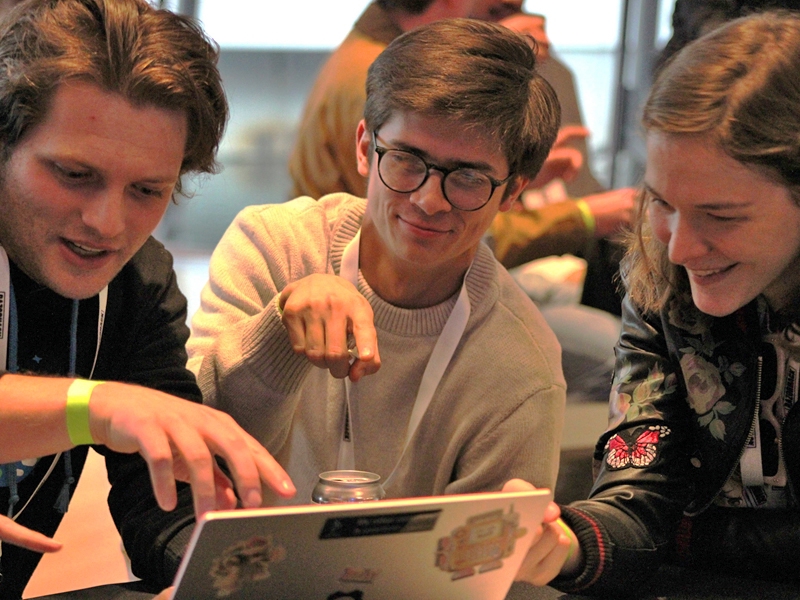A team of students from the Department of Electrical Engineering and Computer Science and one alumna placed first in this year's annual RazorHack.
The RazorHack Cyber Challenge, a three-day event for cybersecurity enthusiasts of all skill levels, concluded with participants displaying their expertise in a variety of challenges. The RazorHack is sponsored by the Institute of Electrical and Electronics Engineers' Ozark Section, IEEE Computer Society, CyberHogs, Arkansas Center for Data Sciences, Fortinet, ExtraHop and Idaho National Laboratory.
The first-place team, Trojan Horses, consisted of alumna Natalie Friede, Tyler Tracy, Jack Norris and Ethan Moss.
The RazorHack challenge asked competing teams to act as cybersecurity consultants for RazorPower, a fictitious solar energy company. Their objective was to help RazorPower recover from a cyberattack that compromised its systems. Challenges spanned many areas such as cryptography, phishing, web exploitation, operation technology, Open Source Intelligence, binary exploitation, reverse engineering and network scanning.
Participants had the opportunity to network with industry experts from companies such as ExtraHop, Fortinet, Idaho National Lab and the Arkansas National Guard. The collaborative spirit was unmistakable as teams of various skill levels demonstrated their abilities and found workable solutions.
Jack Norris of the Trojan Horses said, "Placing first was an honor, and it only gave me a greater appreciation for the cybersecurity professionals in attendance. It felt like my team and I were firing on all cylinders the entirety of the event. I can only imagine how tiring (yet fun) a 40-hour workweek must be for these folks. It was a pleasure getting to absorb some of the knowledge they brought in, and I hope they come back next year!"
Graduate student Tyler Tracy added, "At RazorHack, one challenge that really stood out to me was reverse-engineering a binary to extract a flag. This was particularly tough as my experience with binary exploitation was limited. To tackle this, I had to familiarize myself with new tools for decompiling the binary and identifying function memory addresses. The main goal was to execute a buffer overflow to overwrite the return address, leading it to run the code that would reveal the flag."
RazorHack organizer Evan Glover said about 100 people participated.
"There's no better spot to be in Northwest Arkansas if you are interested in computer science or cybersecurity and want to meet people," Glover said.
Glover suggested students interested in competitions check out the GreenTech student competition in April 2024, which shares some of the same organizers and volunteers.
The next RazorHack is planned for October or November of 2024.
Topics
Contacts
Austin James Cook, project/program specialist
Department of Electrical Engineering and Computer Science
479-575-7120, ac202@uark.edu
Jennifer P. Cook, director of communications
College of Engineering
479-575-5697, jpc022@uark.edu
